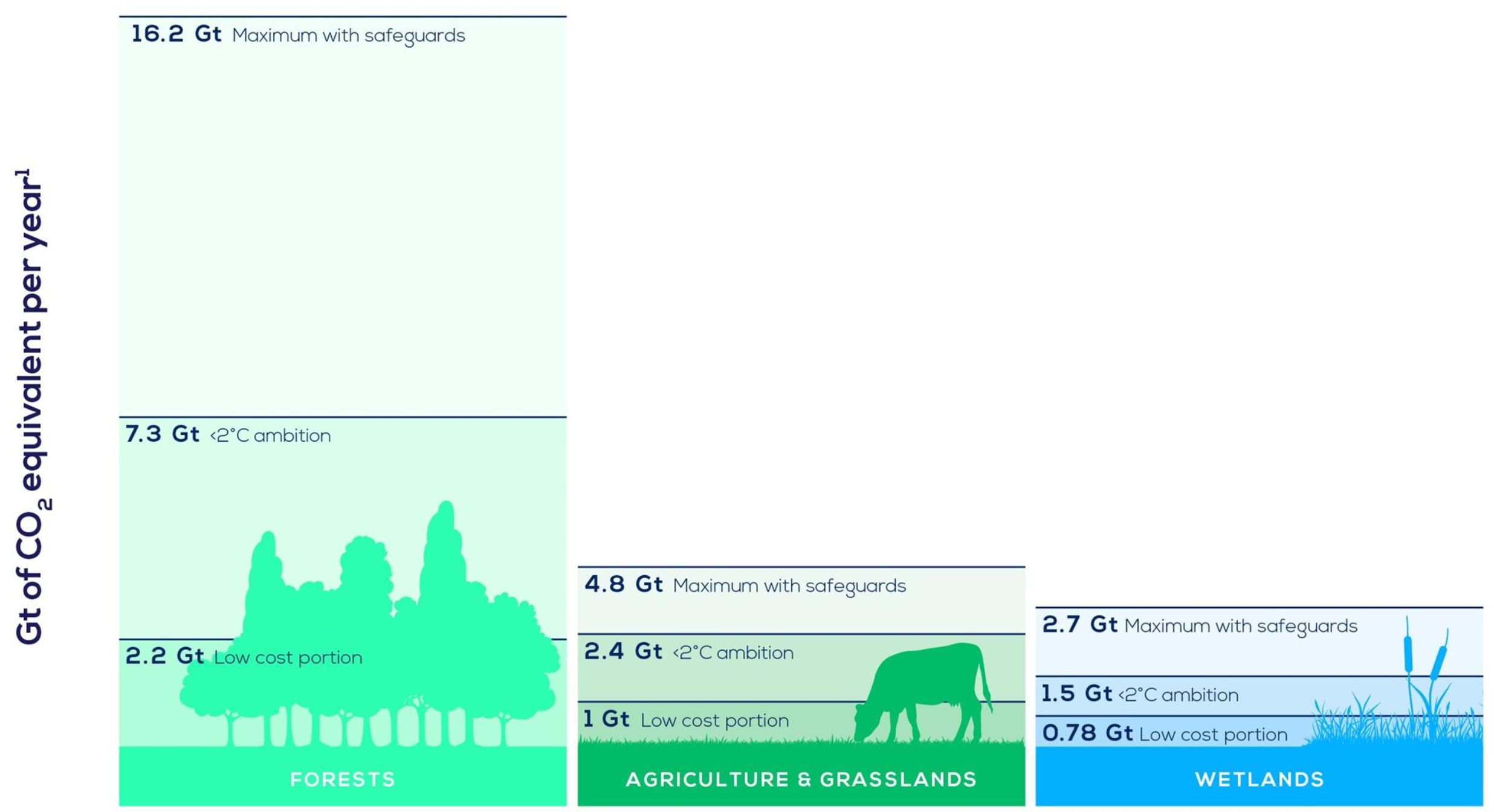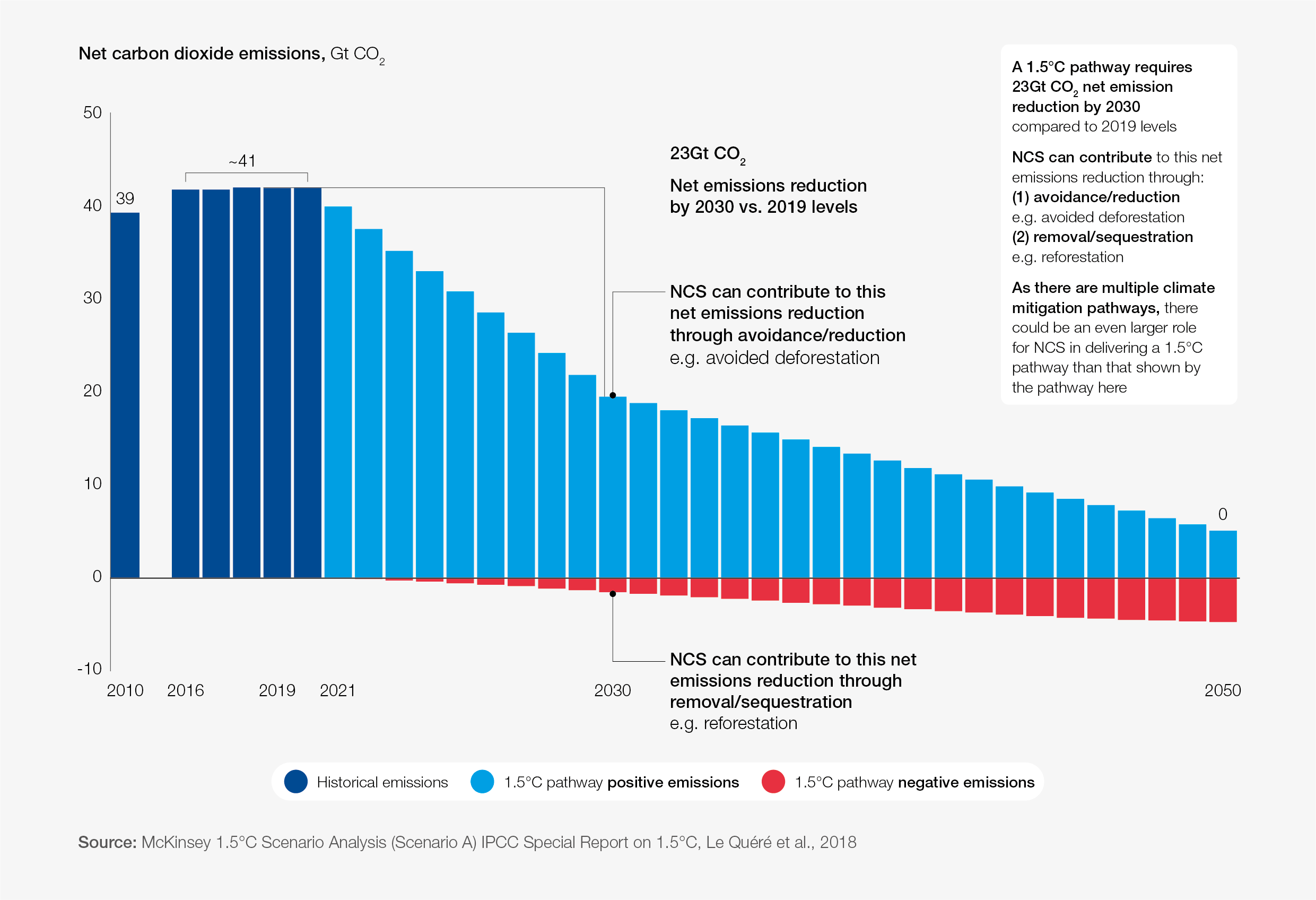The elephant in the room: 5 ways to reconcile conservation and development in the Congo Basin
Nature's own pharmacy … the Congo.
Image: Reuters/Finbarr O'Reilly
Stay up to date:
Forests
- Gabon's lauded conservation policies have imposed significant costs on local communities.
- The wider Congo Basin offers many bio-innovation opportunities that can combine conservation and economic development.
- Local communities must ensure, with the support of the relevant legal frameworks, they benefit fully from the commercialization of resources on their land.
In 2022, in the sweltering heat of Gabon’s rainforest, an elder voiced a community’s frustrations: “Mr President, you’ve protected the elephants, but who protects us? Our fields are trampled, our children go hungry. If these elephants are so important, perhaps they should be the ones casting ballots in the next election, because it seems our voices are not being heard.”
This plea captures a fundamental challenge facing global conservation. While protecting biodiversity is crucial, current approaches often overlook or marginalize local communities, viewing them as either obstacles or passive participants.
Gabon’s conservation policies – initiated by President Omar Bongo at the Rio Earth Summit in 1992, advanced under President Ali Bongo, and now upheld by the transitioning government led by President Brice Clotaire Oligui Nguema – have earned international acclaim. But they have also imposed significant costs on local communities living alongside wildlife. As elephant populations thrive, people are left grappling with destroyed crops and damaged property; a situation that mirrors challenges faced across Africa, where the economic benefits of conservation often bypass those most closely concerned.
Yet the Congo Basin, Earth's second-largest rainforest, offers an opportunity to change this dynamic through bio-innovation, transforming conservation into a path for economic growth that benefits both nature and its inhabitants. The Congo Basin's carbon sequestration services alone are valued at $55 billion annually; 36% of the region's GDP, according to the Center for Global Development. Five emerging opportunities could turn this natural wealth into tangible benefits for local communities while addressing global challenges in biodiversity, medicine and climate.
1. Ibogaine: revolutionizing addiction treatment from Gabon's forests
Gabon’s rainforest shrub Tabernanthe iboga is a game-changer in treating addiction and PTSD. Clinical studies reveal that a single dose of ibogaine, the medicinal compound synthesized from the plant, can dramatically reduce withdrawal symptoms and cravings. With the global addiction treatment market valued at $9 billion in 2023 and expected to reach $16.7 billion by 2033, Gabon has a unique opportunity to capitalize on this natural resource, transforming it into a profitable industry while addressing critical global health challenges.
2. Oklo reactors: powering the future with ancient energy
In Gabon’s Haut-Ogoué province lies a unique geological marvel: the Oklo natural reactors. Two billion years ago, uranium deposits here achieved something extraordinary, a self-sustaining nuclear reaction, the only known natural occurrence on Earth. The commercial implications extend far beyond scientific curiosity; these 16 reactor sites offer practical applications for modern nuclear engineering. Engineers studying Oklo's natural containment mechanisms are developing safer waste storage solutions for next-generation reactors. With the global nuclear market projected to reach $42.9 billion by 2028, establishing a research centre at Oklo could position Gabon as a leader in nuclear research science while creating high-skilled local employment opportunities.
3. Prunus africana: the Republic of Congo's natural health goldmine
The Republic of Congo is home to Prunus africana, a tree whose bark is highly valued for treating prostate disorders. Over-the-counter retail value of the trade in Prunus africana herbal remedies is estimated at $220 million, with demand continuing to rise. By implementing sustainable harvesting practices and processing, the Republic of Congo can tap into this lucrative market, providing economic opportunities for local communities, while conserving this important species.
4. Biodiversity in DRC: nature’s pharmacy
The Democratic Republic of Congo’s vast rainforests are a treasure trove of unique plants, including Ancistrocladus korupensis, which shows promise in treating HIV. The global pharmaceutical market is projected to reach $2.25 trillion by 2030, offering immense opportunities for bioprospecting: the search for new natural resources from which treatments can be derived. By investing in sustainable research and development, the DRC can unlock new treatments, while ensuring that local communities benefit from the commercialization of their natural resources.
5. Sustainable timber and resin: CAR's path to eco-friendly prosperity
The Central African Republic’s rich hardwood forests are a source of valuable timber and resins like gum arabic. The global lumber market was valued at over $250 billion in 2023, with projections indicating continued growth. CAR has the potential to leverage its natural resources through sustainable logging and resin extraction practices. This approach not only boosts the local economy, but also ensures the long-term preservation of the country’s forests.
Beyond these examples, numerous other nature-derived resources within the Congo Basin hold immense potential for economic development, conservation and community empowerment:
- Ecotourism: The Congo Basin’s unique biodiversity, including its vast rainforests and diverse wildlife, positions it as a prime location for the sector. The global ecotourism market is expected to grow to $962 billion in 2032. With proper investment, the region could attract visitors from around the world, generating sustainable income for local communities, while incentivizing the preservation of natural habitats.
- Agroforestry: Integrating trees and shrubs into agricultural systems enhances biodiversity, improves soil health and increases crop yields. The global agroforestry market is growing, fueled by the need for sustainable farming practices that help combat climate change. By adopting these practices, local farmers can benefit economically while supporting conservation efforts.
- Renewable energy: The Congo Basin’s vast natural resources also include significant potential for renewable energy development, particularly in hydroelectric and solar power. The global renewable energy market is expected to reach $2 trillion in 2030. Investing in renewable energy infrastructure could provide clean energy and economic development for the region.
- Biodiversity banking and carbon credits: Protecting the Congo Basin’s forests holds significant potential for carbon credits and biodiversity banking. According to a report BloombergNEF, the carbon market could be valued at over $1 trillion annually by 2050, depending on the strength of demand and the credibility of carbon credits. The Congo Basin could generate substantial income by preserving its forests and biodiversity, which act as critical carbon sinks.
The elder’s words are a powerful reminder: Conservation cannot succeed if it sacrifices the very people it should protect. The time has come to redefine our approach. We must ensure that the protection of nature is intertwined with the prosperity of those who live within it. This is not just about preserving wildlife; it’s about creating a future where both nature and humanity can thrive together.
The case of the San people in South Africa is a salutary lesson in this regard. The San traditionally used the hoodia plant to suppress hunger during long hunts, but it was later patented for use in diet pills without initially recognizing or compensating the Indigenous community. After protests, a benefit-sharing agreement was reached, ensuring that the San people received financial benefits. This case underscores the importance of respecting traditional knowledge and ensuring that local communities are fairly compensated for their contributions.
Similarly, the recent World Intellectual Property Organization (WIPO) Treaty on Intellectual Property, Genetic Resources, and Traditional Knowledge offers a framework for ensuring that local communities benefit from the commercialization of their natural resources. By aligning conservation efforts with the principles of this treaty, Gabon and other Central African nations can protect their biodiversity and empower their people.
What is the World Economic Forum doing on natural climate solutions?
The Congo Basin ecosystems are rich with resources that, if managed sustainably, can provide economic opportunities for local communities without sacrificing environmental integrity. By embracing this new paradigm, we can protect the region’s incredible biodiversity, while also ensuring a prosperous and sustainable future for its people. The time to act is now, and the path forward must honour both the richness of nature and the resilience of the communities that call it home.
Don't miss any update on this topic
Create a free account and access your personalized content collection with our latest publications and analyses.
License and Republishing
World Economic Forum articles may be republished in accordance with the Creative Commons Attribution-NonCommercial-NoDerivatives 4.0 International Public License, and in accordance with our Terms of Use.
The views expressed in this article are those of the author alone and not the World Economic Forum.
Related topics:
Forum Stories newsletter
Bringing you weekly curated insights and analysis on the global issues that matter.
More on Nature and BiodiversitySee all
Zoe Balmforth and Tim Duehrkoop
May 22, 2025
Jack Hurd and Florian Vernaz
May 21, 2025
Madeleine North
May 20, 2025
Dipali Khandelwal and Hemlata Chauhan
May 19, 2025







